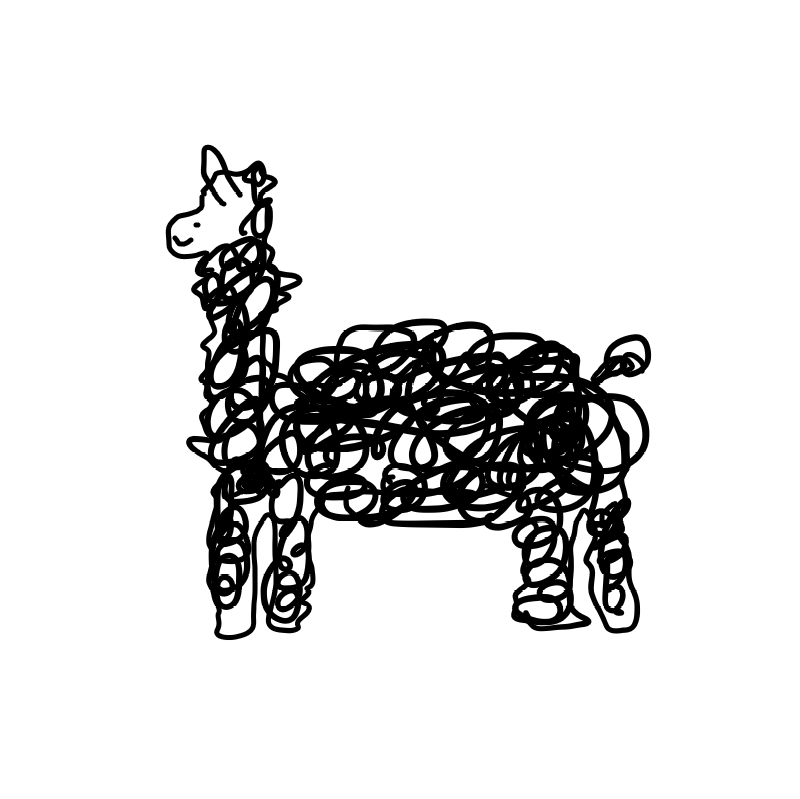268. Missing Number
https://leetcode.com/problems/missing-number/
My Answer 1: Accepted (Runtime: 132 ms - 61.74% / Memory Usage: 15.4 MB - 79.40%)
class Solution:
def missingNumber(self, nums: List[int]) -> int:
nums.sort()
start = 0
if nums[0] != 0:
return 0
for i in range(1, len(nums)):
if start+1 != nums[i]:
return start+1
start += 1
return nums[-1] + 1정렬해서 0 ~ n 까지 연속인지 확인
연속하지 않으면 끊긴 값 return
끝까지 봤으면 마지막 값 + 1 return
이 외에도 in 을 사용하는 방식도 해봤지만
Follow up: Could you implement a solution using only O(1) extra space complexity and O(n) runtime complexity?
이걸 만족하지 못함...
Solution 1: Accepted (Runtime: 124 ms - 89.20% / Memory Usage: 15.5 MB - 49.03%)
class Solution:
def missingNumber(self, nums: List[int]) -> int:
n = len(nums)
expected_sum = n*(n+1)//2
return expected_sum - sum(nums)Gauss' Formula
=> 0 ~ n 의 전체 합 - 주어진 nums 의 합
283. Move Zeroes
https://leetcode.com/problems/move-zeroes/
My Answer 1: Accepted (Runtime: 124 ms - 15.39% / Memory Usage: 15.4 MB - 65.36%)
class Solution:
def moveZeroes(self, nums: List[int]) -> None:
"""
Do not return anything, modify nums in-place instead.
"""
count = 0
while 0 in nums:
count += 1
nums.remove(0)
for i in range(count):
nums.append(0)0 들을 모두 제거해주고
그 개수만큼 다시 뒤에 append
Solution 1: Accepted (Runtime: 48 ms - 77.21% / Memory Usage: 15.4 MB - 65.36%)
class Solution:
def moveZeroes(self, nums: List[int]) -> None:
"""
Do not return anything, modify nums in-place instead.
"""
i = 0
for j in range(len(nums)):
if nums[j] != 0:
nums[i], nums[j] = nums[j], nums[i]
i += 1인덱스 i 에 0 이 아닌 숫자들을 고정시킴
146. LRU Cache
https://leetcode.com/problems/lru-cache/
My Answer 1: Accepted (Runtime: 2680 ms - 7.87% / Memory Usage: 74 MB - 75.12%)
class LRUCache:
def __init__(self, capacity: int):
self.cache = {}
self.capacity = capacity
self.recent = []
def get(self, key: int) -> int:
if key in self.cache:
if self.recent[-1] != key:
self.recent.remove(key)
self.recent.append(key)
return self.cache[key]
return -1
def put(self, key: int, value: int) -> None:
if key in self.cache:
self.cache[key] = value
if self.recent[-1] != key:
self.recent.remove(key)
self.recent.append(key)
else:
if len(self.cache) == self.capacity:
k = self.recent.pop(0)
del self.cache[k]
self.cache[key] = value
self.recent.append(key)
# Your LRUCache object will be instantiated and called as such:
# obj = LRUCache(capacity)
# param_1 = obj.get(key)
# obj.put(key,value)cache: dictionary 에 key-value 형식으로 저장
capacity: 최대 size
recent: 최근 사용한 순서대로 key 값들 저장 (마지막 값이 가장 최근에 사용)
get)
key 값이 cache 에 존재하면 recent 순서 업데이트 후 return
put)
key 값이 cache 에 존재하면 value update & recent 순서 업데이트 후 return
존재하지 않을 경우 (새로 넣어야 할 경우) 는
사이즈가 꽉 찼으면 recent.pop(0) key 를 cache 에서도 삭제 처리
cache & recent 모두 새로 넣어주기
루션이 중에 linked list 를 사용하는게 있긴 하지만...
지금 풀이가 더 이해하기 좋다고 생각..^^
148. Sort List
https://leetcode.com/problems/sort-list/
My Answer 1: Time Limit Exceeded (24 / 28 test cases passed.)
# Definition for singly-linked list.
# class ListNode:
# def __init__(self, val=0, next=None):
# self.val = val
# self.next = next
class Solution:
def sortList(self, head: Optional[ListNode]) -> Optional[ListNode]:
if head is None:
return None
h = head
length = 0
while head:
length += 1
head = head.next
prev = h
head = h.next
for i in range(length):
p = prev
while head:
if prev.val > head.val:
prev.val, head.val = head.val, prev.val
prev = prev.next
head = head.next
prev = p
head = p.next
return h우선 전체 길이 계산 => length
prev 는 head 의 이전 노드를 가리키도록 함
length 길이 만큼 for 문 돌리면서 버블정렬 하듯이
현재 head 값이 위치할 곳을 찾아 계속 swap
prev, head 는 다음 값으로 이동
Solution 1: Accepted (Runtime: 468 ms - 63.01% / Memory Usage: 30.2 MB - 35.27%)
# Definition for singly-linked list.
# class ListNode:
# def __init__(self, val=0, next=None):
# self.val = val
# self.next = next
class Solution:
def sortList(self, head: ListNode) -> ListNode:
if not head or not head.next:
return head
p, slow, fast = None, head, head
while fast and fast.next:
p = slow
slow = slow.next
fast = fast.next.next
p.next = None
return self.merge(self.sortList(head), self.sortList(slow))
def merge(self, l1, l2):
dummy = ListNode(None)
curr = dummy
while l1 and l2:
if l1.val > l2.val:
curr.next, l2 = l2, l2.next
else:
curr.next, l1 = l1, l1.next
curr = curr.next
if l1:
curr.next = l1
elif l2:
curr.next = l2
return dummy.nextslow, fast 로 slow 를 중간 노드에 위치하도록 해서
절반으로 나눔 => p.next = None
각 반씩 merge 하기 => merge(self.sortList(head), self.sortList(slow))
merge)
dummy 노드를 만들고
l1, l2 두 노드 값을 동시에 비교하면서 더 작은 값을 curr 에 붙여줌
남은 노드는 뒤에 붙여주기
냅다 외워!!!
